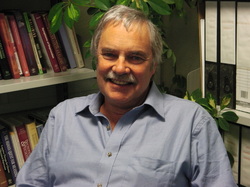Research
London published more than 150 articles and books on a range of subjects, comprising an ample intellectual heritage in clinical psychology as a theorist, empirical scientist, and teacher. His Modes and Morals of Psychotherapy (1964/1986) was the first cognitive account of the behavior therapies and remains a foundational text for modern students of the technologies and ethical implications of clinical psychology. In it London showed how therapeutic variety was essential to the field and not a “childhood disease” that would be overcome once one theory and approach was ultimately validated by research and came out victorious over all others. He was one of the first analysts of the therapeutic scene who argued that the most basic characteristic of a therapist might not be their theoretical allegiance, but their moral, interpersonal and existential stance. Later, London wrote and co-authored several articles (London, 1970, Omer & London 1988, 1989) describing how the field developed beyond its early focus on establishing which theory and therapy approach were true and right, into an understanding that theoretical ideologies and all-embracing theories were inadequate to explain therapeutic success. He showed how the field shifted its focus from theoretical purity to pragmatics, seeking to identify common factors that explained the effectiveness of different and even contrasting approaches, and special moments of change that could occur in similar ways in highly different kinds of therapy.
Behavior Control (1969) elaborated those themes. His Beginning Psychology (1975) was a highly accessible invitation to psychology, serving as an introductory text book. His writing was characterized by a conceptual perspective and an elegance of prose that made it memorable.
In his The Children’s Hypnotic Susceptibility Scale (1963), London showed that hypnotibility is an individual characteristic, present in different people in different degrees. His scale enables therapists to identify who can benefit from hypnotherapy to treat pain, improve health and reduce anxiety.
At a time when self-reward was the leitmotif in psychology, London was a pioneer in the study of Christians who had risked their lives to save others—Jews, Gypsies, and American servicemen – during World War II. These rescuers endangered themselves, and often also their families including children, in many cases to save the lives of complete strangers. They hid them in basements and rooms behind walls and helped them escape to safer areas. London and his associates found that rescuers were often adventurous people, which helped them have the courage required for action. They were often marginal to their community, different from the people in the community in some way. They may have had one foreign parent, or were Catholics in a Protestant community, or had a personal characteristic that made them somewhat different (London, 1970). This does not mean that they were disconnected from other people, but this marginality enabled them to have a separate perspective.
When their community supported the Nazi persecution of Jews, they did not. One famous rescuer, Oscar Schindler, was marginal in that he was a German who lived in Czechoslovakia, a Protestant who married a Catholic woman from another village. Raoul Wallenberg, a Swedish diplomat who saved the lives of many Jews in Hungary, was marginal in that he was a member of a poor branch of a very rich family (Staub, 1989, 2015).
London and his associates could not continue their work, because no funding organization was willing to support them. They were told in the early 1960s that too much time had passed to get reliable information. However, the subsequent development of Holocaust studies would suggest that people at that time, including funders, were not yet ready to look at the horrors of that period. Indeed, much later, starting in the 1980s, a number of important articles and books appeared with the in-depth study of rescuers (for example, Oliner and Oliner, 1998).
London’s concern with the rescuers in the Holocaust led him to focus on the development of the willingness for altruistic and self-sacrificing behaviors in children. His research on this issue (Bryan and London, 1970) found that altruism and self-sacrifice seemed to develop independently of the social reinforcements that the child might receive for such behaviors. The only variable that was consistently found to help foster altruistic tendencies in children was a family atmosphere in which the parents encouraged and modeled the expression of empathic feelings. In contrast, a family atmosphere focusing on success and competition was found to hinder the child’s readiness for altruism and self-sacrifice.
In the last decade of his life, London studied and advised Jewish organizations on Jewish identity education, developing some of the principles that would evolve into Birthright, the organization that sponsors free educational trips to Israel for young adults of Jewish heritage.





